Further reading
Whilst you're here, why not get stuck in with some of our latest AWESOME articles…

Unlock Your Recovery Superpower: Sleep
Let’s get one thing clear, recovery isn’t rest. It's a strategy. And at the centre of that strategy? Sleep....
Read time: 3 minutes
Science

The Foundations of High Performance – Part 2
How to Build on the Foundations and Take Your Life to the Next Level
Building on the Foundations
Welcome ba...
Read time: 8 minutes
Science

The Foundations of High Performance – Part 1
How to Build the Mindset, Routines, and Environment for Success
What does it really mean to live a high-per...
Read time: 5 minutes
Science

Spring Recovery: How to Reset Your Health and Energy After Winter
As the days start to grow longer and the wet, damp chill of winter disappears, Spring is a time of renewal....
Read time: 5 minutes
Science

Why Is It So Hard to Make Habits Stick? Here’s How to Finally Break the Cycle
Picture the scene. It’s mid-February and your gym shoes are gathering dust, and the healthy meal prep conta...
Read time: 4 minutes
Science
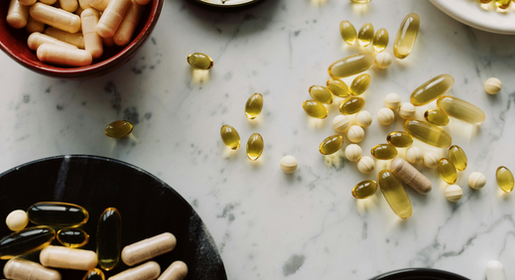
How to Spot Bogus Supplement Claims and Make Informed Decisions
Read time: 3 minutes
Science
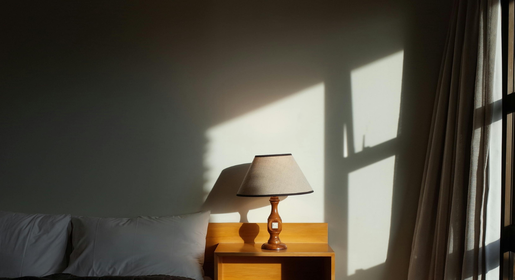
Discipline Equals Freedom: The Final Step to Night-Time Optimisation
Jocko Willink famously said, “Discipline equals freedom.”It’s true for fitness, business, and absolutely tr...
Read time: 1 minute
Nutrition
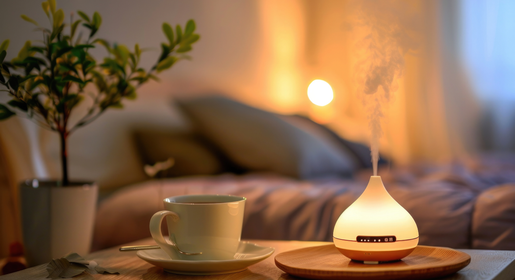
How to De-Stress for Deeper Sleep: Ben Coomber’s Anti-Stress Formula
Sleep and stress don’t mix. The build-up to bedtime is your chance to let the day wash away, but most of us...
Read time: 1 minute
Nutrition
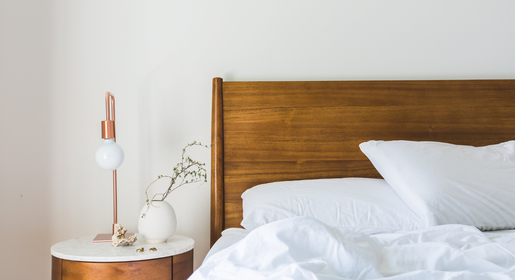
The 8-3-1-30 Principle: How to Win Tomorrow by Owning Your Evening
Everyone’s obsessed with “winning the morning,” but here’s the truth - your 9 pm decisions will always shap...
Read time: 1 minute
Nutrition

The Awesome Vegan Meal Plan
We often get asked about meal plans and recipe ideas for vegans, which is unsurprising considering the rise...
Read time: 10 minutes
Nutrition

Seasonal Affective Disorder - How to avoid seasonal depression this winter
As the days get shorter again this autumn, we’re revisiting some tips we shared a while back on managing se...
Read time: 3 minutes
Nutrition
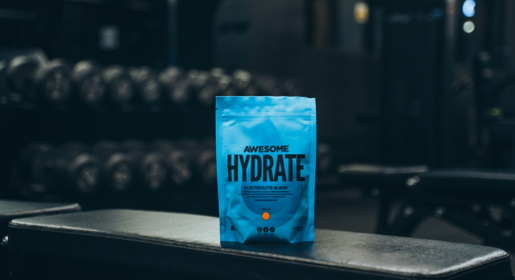
Awesome Hydrate 2.0 is Here - Better Formula, New Flavour, Same Mission!
If you’ve been using Awesome Hydrate (did you know it’s our #1 selling product… bonkers), you’ll know it’s ...
Read time: 3 minutes
Nutrition

The Science of Hydration: Boost Performance With the Right Fluids
Hydration isn’t just about drinking more water, it’s about giving your brain and body what they need to fun...
Read time: 3 minutes
Nutrition

Feed Your Potential: How Nutrition Shapes Your Mood, Focus and Performance
“You are what you eat” is just the start.
You’re also how you think, how you feel, and how you show up bec...
Read time: 3 minutes
Nutrition

The Top 5 Nutrition and Lifestyle Tip to Ease Your Menopause Symptoms
Menopause is a natural phase in a woman’s life, but it’s not always easy to navigate.
From joint pain to w...
Read time: 5 minutes
Nutrition
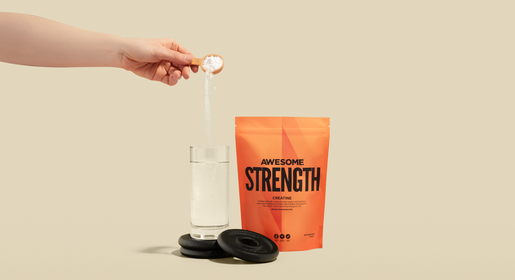
Creatine: The Ultimate Performance & Brain-Boosting Supplement
Creatine is often associated with strength, power, and muscle growth, but its benefits extend far beyond th...
Read time: 5 minutes
Nutrition

5 Things that disrupt sleep and what to do instead
We all know how important sleep is for health, productivity and wellbeing. But many of us just aren’t getti...
Read time: 8 minutes
Nutrition

Which sleep night time recovery formula is best to buy - 8 products compared
A good night’s sleep is often the most overlooked piece of the health and performance puzzle. And it’s not ...
Read time: 9 minutes
Nutrition

Defying the Odds: A Journey from Cardiac Arrest to Peak Fitness
At 46, Glenn Carrigan is defying the odds and inspiring others with his incredible story of resilience and ...
Read time: 4 minutes
Nutrition
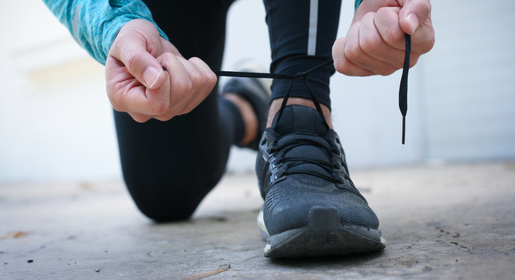
Couch to 100km - Running my first ultra marathon
Have you ever wondered what it takes to run a 100km ultra marathon? Charlie Warner, a 26-year-old who thriv...
Read time: 4 minutes
Nutrition
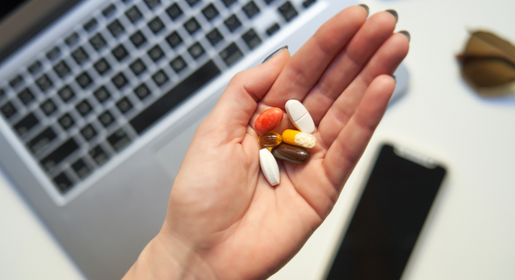
Improve memory, cognition and mental function with a daily multivitamin - NEW RESEARCH
"Daily multivitamin-mineral (MVM) supplementation for 3 years improved global cognition, episodic memory, a...
Read time: 5 minutes
Nutrition
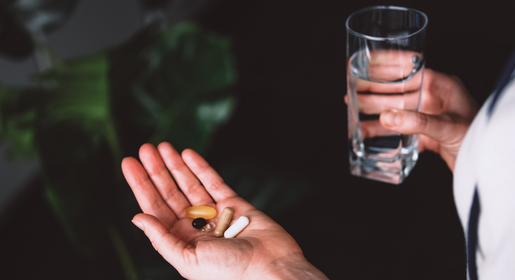
Mastering the Menopause: A Journey of Strength, Wellbeing and Supplementation
Embracing fitness and smart supplementation can yield remarkable results, even post-menopause when maintain...
Read time: 4 minutes
Nutrition
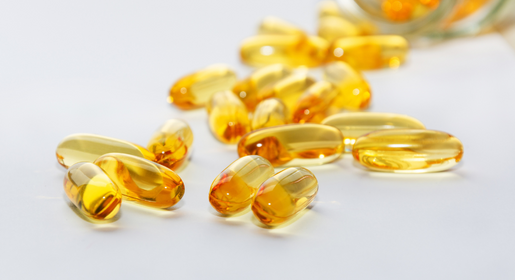
Taking an Omega 3 supplement could add 5 years to your life - NEW RESEARCH
Bold statement, but new research shows it’s true, increasing your Omega 3 index from 4% to 8% can increase ...
Read time: 6 minutes
Nutrition

How do Electrolytes fuel optimal human performance & maximise hydration?
Electrolytes are essential, electrically-charged minerals...
Read time: 9 minutes
Nutrition

12 Habits of High-Performance People – Optimise your body and mind
The awesome ethos is underpinned by the desire to want to perform at our peak, every day – where possible.
...
Read time: 2 minutes
Nutrition
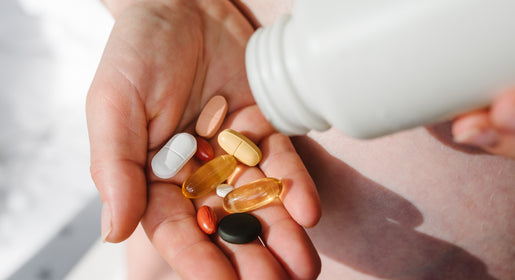
9 Multivitamins compared - is your’s worth the money?
Is your multivitamin doing its job or are you being ripped off? Has it even crossed your mind to check? To ...
Read time: 15 minutes
Nutrition
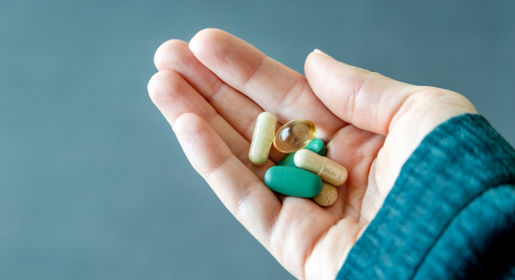
What multivitamin is best? Here's what you need to look out for
The nights are now drawing in and for many of us, our attention turns to our health and how to prevent coug...
Read time: 12 minutes
Nutrition

Joint Pain, Recovery & Anxiety, can Curcumin Supplements help?
When you ask about the supplements people take, you can bet with some degree of certainty that you’ll hear ...
Read time: 9 minutes
Nutrition

Is my pre-workout product effective? 10 Companies are put under the pre-workout microscope
Pre-workout products are among the most popular additions to a sports supplementation regime. Gym goers aro...
Read time: 12 minutes
Nutrition
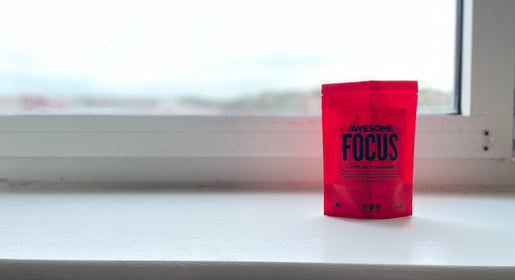
How much caffeine should you take before exercise?
When it comes to ergogenic aids for exercise performance, caffeine is one of the most common and most effec...
Read time: 7 minutes
Nutrition

Not all multivitamins are created equal!
A new year is always a good time to take stock of our health and get back on track. Not only do we feel we’...
Read time: 5 minutes
Nutrition

Top 10 Plant Based Protein Sources
Why is Protein so important in our diet?
Consuming adequate protein is essential for developing muscle mass...
Read time: 4 minutes
Nutrition

Awesome Boost and Awesome Focus - what do they do?
This blog will cover:
What Awesome Boost (pre-workout) is
Who should take Awesome Boost?
What is in Awesom...
Read time: 3 minutes
Nutrition

7 Tips for stress free dieting
If you’ve ever tried dieting before, you’ll know what we mean when we say it can end up being a little st...
Read time: 6 minutes
Nutrition
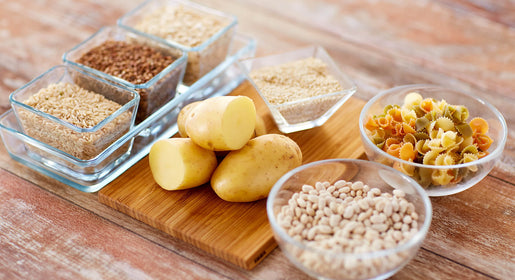
Carb Cycling and Cyclical Ketogenic Dieting
Weight loss is quite easy provided you are in a generally good state of health. All you need to do is ensu...
Read time: 12 minutes
Nutrition
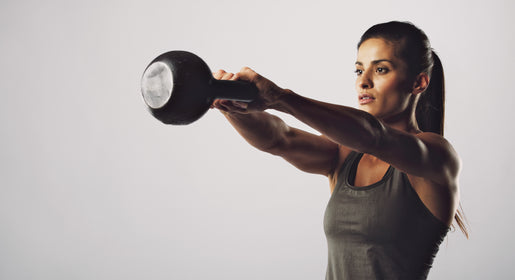
Resistance training around the menstrual cycle
One of the best tools in a woman’s training arsenal is a cycle tracker
Read time: 8 minutes
Nutrition
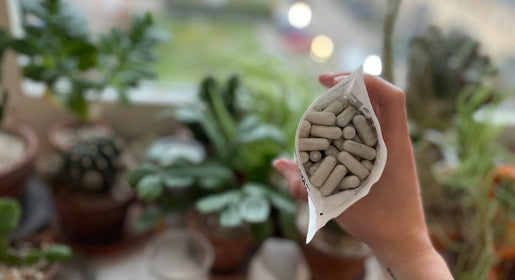
Multivitamins – Why should we take them?
When you come to our online store you may be wondering “which supplements should I take?” for which the ...
Read time: 7 minutes
Nutrition

Optimising a vegetarian/vegan diet
Plant based lifestyles including vegetarian and vegan approaches to nutrition are increasing in popularit...
Read time: 9 minutes
Nutrition

Why Take a Pre-Workout?
When it comes to gym performance, we're pretty confident in saying that many of us would like to find some...
Read time: 5 minutes
Nutrition
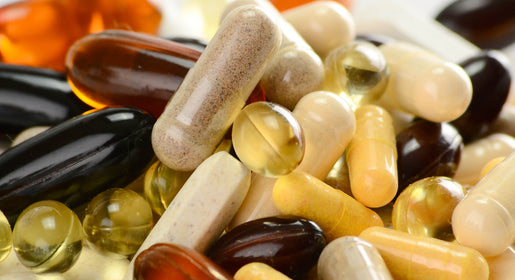
Which Supplements Don't Work?
We’ve all been there. We’ve seen the adverts in magazines or on posters; we’ve seen the amazing sponsored a...
Read time: 22 minutes
Nutrition
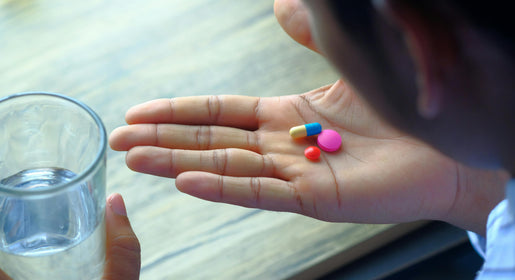
What Supplements Should You Take?
Originally published in 2020, updated April 2025
A real-world guide to figuring out what your body actually...
Read time: 5 minutes
Nutrition

What are the benefits of protein powder
Set your mind back about 20ish years
(No, that's not 1980, it's 2000. Take as long as you need to process ...
Read time: 3 minutes
Nutrition
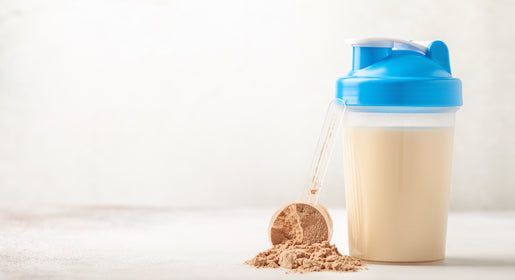
The best tasting vegan protein powder?
According to Google, thousands of people search for ‘what’s the best vegan protein powder’ every month. Tha...
Read time: 2 minutes
Nutrition
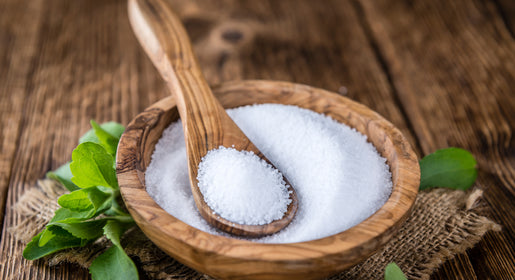
Is Stevia the Healthiest Sweetener?
~10 minute read. Cliff Notes:
For Stevia to be the healthiest sweetener, it would need to be beneficial or...
Read time: 10 minutes
Nutrition

The Benefits of Eating a High Protein Diet
Protein is the macronutrient in vogue these days, with supermarket shelves full of ‘high protein’ this and...
Read time: 4 minutes
Nutrition

What Men’s Health Really Looks Like in 2025 (From 5 Real Men Who Live It)
Why Men’s Health Needs To Be Redefined
If you Google men’s health, you’ll get a lot of advice about testost...
Read time: 3 minutes
Training

Power Up Your Performance: Top Supplements for HYROX Events and Training
HYROX. If you have your finger on the fitness pulse you’ll know all about it. Launched in Germany in 2017,...
Read time: 7 minutes
Training

Do I need electrolytes when I exercise, especially in the Summer?
Just when we thought it would never happen, the sun has finally come out.
Up and down the country, people a...
Read time: 3 minutes
Training

Awesome Strength or Awesome Power - which one is for me?
"Creatine? That’s just for bodybuilders isn’t it?"
If we had a pound for every time we heard this said, we’...
Read time: 2 minutes
Training
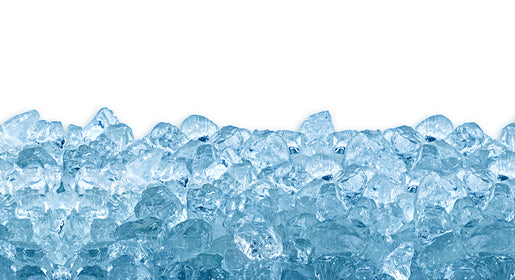
Cold Therapy - Would it benefit you?
A while ago, I wrote an article asking if it was the end of an era for ice therapy.
This article referred t...
Read time: 5 minutes
Training

8 Simple Steps To Build More Muscle
While it may not be everyone's top goal, building muscle is something that we would wager most Awesome Sup...
Read time: 10 minutes
Training
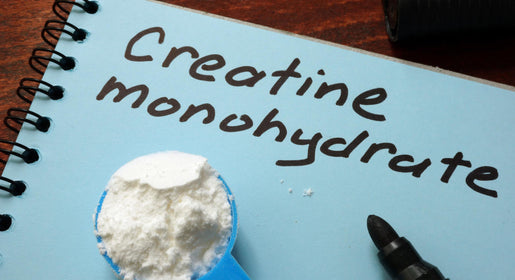
Creatine FAQ
Many of the Awesome Supplements products contain creatine, one of the most popular and effective sports su...
Read time: 6 minutes
Training
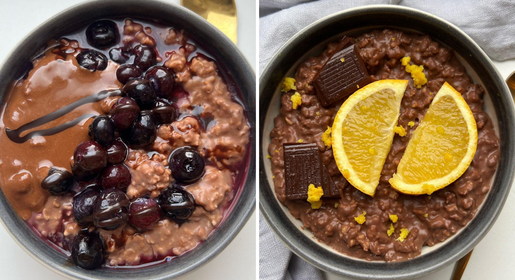
7 Protein Porridge Recipes that taste AWESOME
Every week we’re inundated with amazing protein porridge recipes from our awesome customers and what better...
Read time: 5 minutes
Recipes

A whole week of protein porridge recipes for Awesome Porridge week!
7 days of Protein Porridge Recipes!
Monday 10th October was World Porridge Day.
But everyone knows just how...
Read time: 7 minutes
Recipes

Apple Protein Cold Oats Rainbow Bowl
Here’s a high protein breakfast idea, you can make it in less than 15 minutes, and a guarantee that it wil...
Read time: 1 minute
Recipes

Chocolate Caramel Pretzel Baked Oats
Chocolate salted caramel, pretzel and Biscoff all in one? These baked oats are full of flavour and oozing w...
Read time: 1 minute
Recipes

Nutella Baked Oats
These delicious baked oats are perfect for you chocolate lovers. With Nutella and our chocolate salted cara...
Read time: 1 minute
Recipes

Chocolate Salted Caramel Protein Bites
Who doesn’t love a chocolate treat especially when they taste like little brownie bites, and they are so DE...
Read time: 1 minute
Recipes

Chocolate Peanut Butter Cup Pancakes
The fudgiest, most chocolatey pancakes ever for breakfast, topped with Biscoff spread and Reece’s peanut b...
Read time: 1 minute
Recipes

Awesome Vegan Red Velvet Pancakes
This sure doesn’t sound like your typical breakfast… I mean, vegan red velvet Pancakes? These are one of th...
Read time: 1 minute
Recipes

Chocolate Protein Doughnuts
These donuts are the perfect snack if you’re looking to up your daily protein intake a bit as each donut ha...
Read time: 1 minute
Recipes

Single Serve Double Chocolate Chip Protein Cookie
This super easy to make, soft and indulgent cookie is perfect to make when you need a quick treat. With our...
Read time: 1 minute
Recipes
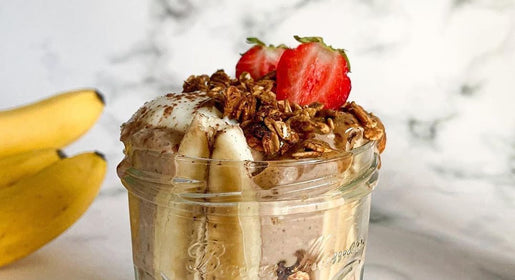
Chocolate Protein Overnight Oats
These chocolate protein overnight oats are perfect start to start your day. Simple and easy to make and bur...
Read time: 1 minute
Recipes

Two Ingredient Protein Magnums
These are the creamiest and easiest magnums you’ll ever try! High in protein as well and the best part: ONL...
Read time: 1 minute
Recipes

White Chocolate Matcha Protein Oats
Are you someone who likes to try new things? If yes, then this recipe is for you. This white chocolate matc...
Read time: 1 minute
Recipes

Chocolate Mousse Smoothie Bowl with Raspberries & Coconut
A simple and easy recipe that’s perfect to have as a meal or as a cheeky dessert without feeling the guilt....
Read time: 1 minute
Recipes

Protein Snickers Brownie
Layers and layers of goodness in this brownie recipe, high protein, low sugar and extra indulgent! Who want...
Read time: 1 minute
Recipes

Fudgy Protein Brownies
These indulgent brownies are a great alternative to make if you’ve had enough of baking the classic banana ...
Read time: 1 minute
Recipes

Chunky Monkey Baked Oats
CHUNKY MONKEY BAKED OATS is calling! Start your mornings off right with a baked cake like oat bowl full of ...
Read time: 1 minute
Recipes

Chocolate Orange Shell Oats
These overnight creamy oats are like no other. With a thick shell layer of indulgent chocolate for you to c...
Read time: 1 minute
Recipes

Vegan Coconut Cake
This cake is high on the list of favourite things and can be the ultimate dessert and breakfast because it’...
Read time: 1 minute
Recipes

Vegan Chocolate Orange Baked Oats
These smooth and indulgent baked oats are perfect for you chocolate orange lovers. Full of flavour and pro...
Read time: 1 minute
Recipes

Single Serve Cookie Dough Loaf
This Single Serve Cookie Dough Loaf is one of those recipes you’ll immediately want to add to your go-to d...
Read time: 1 minute
Recipes

Tiramisu Style Baked Oats
Not just any baked oats, these are tiramisu style baked oats full of flavour making them taste like a dess...
Read time: 1 minute
Recipes

Triple Chocolate Orange Oats
Chocolate orange protein oats, topped with chocolate orange granola, chocolate orange low cal syrup and fu...
Read time: 1 minute
Recipes

Chocolate orange baked oats
This recipe is low in sugar, high in protein, and the perfect healthy breakfast or dessert oat cake. You w...
Read time: 1 minute
Recipes

Chia Protein Pudding
This chia pudding is high in protein, loaded with live vegan cultures and fibre that both feed the gut flo...
Read time: 1 minute
Recipes

Chocolate Orange Baked Oat Cake
Cake for breakfast? Alright then. The perfect start to your day with this chocolate orange baked oat cake ...
Read time: 1 minute
Recipes




